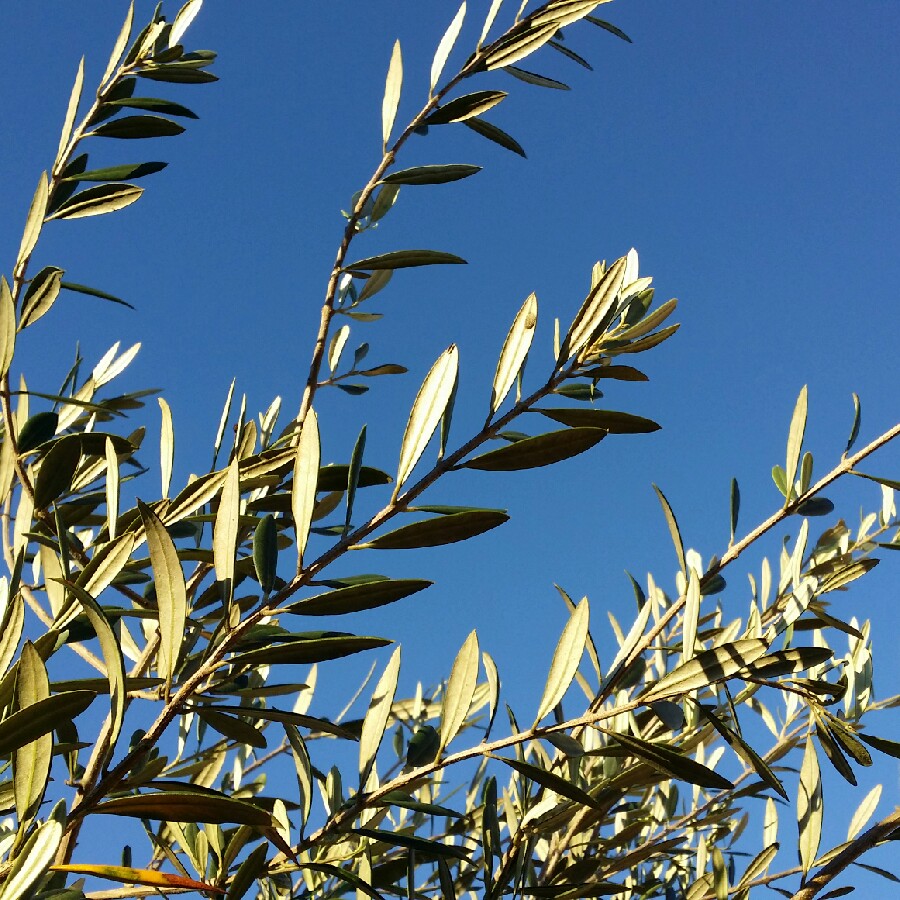
Olea europaea 'Kalamata'
Olive 'Kalamata'
Olea europaea is an evergreen tree with glossy grey-green to dark-green foliage. It bears clusters of tiny scented white flowers followed by green or purple olives. They take at least four years to produce fruit. 'Kalamata' olive is one of the best black eating olives. It is frost-resistant. The trees start flowering in autumn and the fruit is generally ready to harvest from late spring when the olive turns a dark purple colour.
Contributed by @KathyB
-
Full sun
-
Occasional watering
-
Frost Hardy: 23F (-5°C)
-
Moist and free draining
Common name
Olive 'Kalamata'
Latin name
Olea europaea 'Kalamata'
type
Trees or Shrubs
family
Oleaceae
ph
5.6 - 7.8 Acid - Neutral
Plant & bloom calendar
-
Best time to plant
-
When the plant will bloom
full grown dimensions
 12.00 M
10.00 M
12.00 M
10.00 M
Olea europaea 'Kalamata'
Olea europaea is an evergreen tree with glossy grey-green to dark-green foliage. It bears clusters of tiny scented white flowers followed by green or purple olives. They take at least four years to produce fruit. 'Kalamata' olive is one of the best black eating olives. It is frost-resistant. The trees start flowering in autumn and the fruit is generally ready to harvest from late spring when the olive turns a dark purple colour.
Flowering Season
From Mid Spring TO Early Summer
Small white flowers appear in Spring - the warmer the climate, the earlier the flower buds appear.
Plant container plants
From Mid Spring TO Late Spring
Plant container plants in a sunny position, and keep the compost moist at all times. In order to flower and fruit, olives need a two month cold period of below 10 deg.C. They also need day and night fluctuation of temperature, so indoor plants are unlikely to flower or fruit.
Propagation by Semi Hardwood Cuttings
From Late Summer TO Mid Autumn
Semi hard wood cuttings are taken from the current years growth from late summer to mid autumn the bottom of the cuttings is hard and soft on the top. With a sharp knife take a cutting of about 14 cms, remove lowest leaves, dip end into rooting hormone, and place round the edge of a pot filled with a suitable compost, water well, they must remain moist till rooted, place under glass but in semi shade.
Propagation by Seed
From Late Spring TO Late Spring
Fill a seed tray with seed compost,water and allow to drain. Sprinkle seeds over the surface allowing roughly 25mm space between seeds and cover with a thin layer of compost. Put tray in a clear polythene bag and place on a windowsill. When seedlings show remove plastic bag. When the second pair of leaves appear on the seedlings thin out to 50mm spacing by removing the weakest looking plants. After 2 or 3 weeks and when danger of frost has passed plants can then be planted outside into required position.














